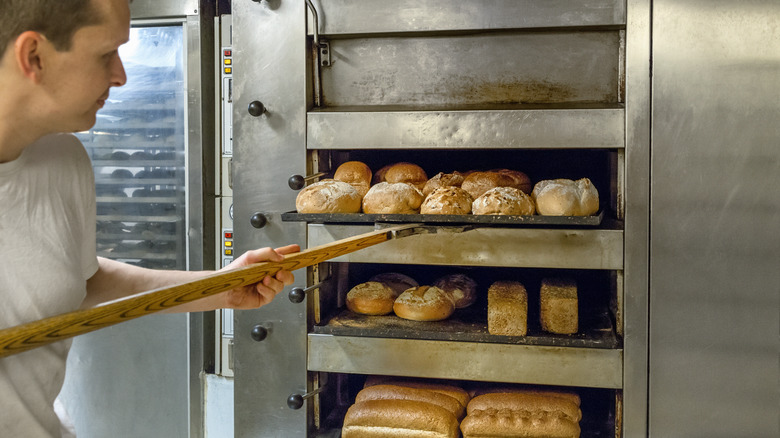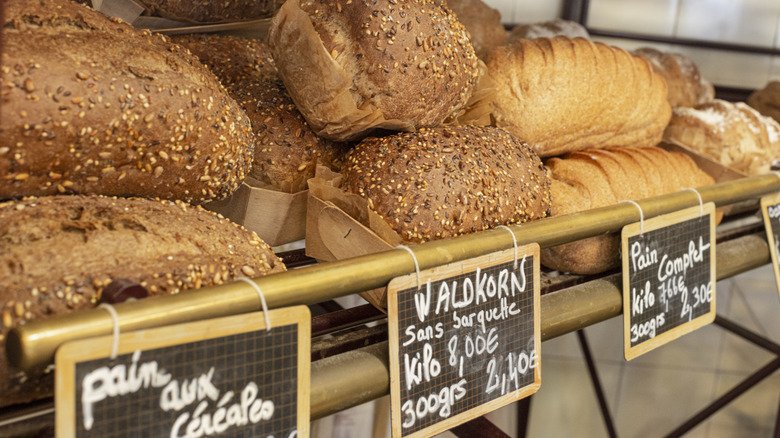Fun Fact: French Bakeries Are Actually Defined By Law
There are few things France takes more seriously than food. They're the country that came up with the five mother sauces, as well as more or less writing the book on master cooking techniques. Heck, McDonald's was only able to hold its own in France after the company began to adopt the French café aesthetic and business model. And while the French certainly care about all manner of cooking, bread is particularly integral to the national culture (hence why there are baguette machines in the French wilderness).
The same applies to bakeries — and specifically, what even is allowed to legally call itself a bread bakery in France. You can't just sell "homemade bread" from pre-made dough and declare yourself a bakery; you have to make the bread from scratch, right on the premises. This specifically applies to bread bakeries, called boulangeries, that typically staff a master baker known as a boulanger — pâtisseries (pastry shops) and viennoiseries (Viennese breakfast pastry shops) are not subject to this law. But when it comes to bread, the rules are ironclad. While there are places that sell frozen or premade bread in France, they can't use the term "bakery," instead they go by terms like "bread house" or "bread depot." And it's all backed up by an official government decree from 30 years ago.
There was a literal Bread Decree in 1993
There may be numerous types of French bread, but all boulangeries are required to adhere to this standard to this day. The French government wasn't joking around about these regulations when it instituted them in 1993 in what was known as "Le Décret Pain" (literally "The Bread Decree"). Working pursuant to earlier laws defining what constituted "fraud or falsification," the decree states: "Only breads that are entirely kneaded, shaped and baked at the point of sale to the final consumer may be offered for sale or sold under the name: 'homemade bread' or an equivalent name."
There were actually all sorts of requirements under this decree. Bread had to include only wheat bread flour, cooking salt, a leavening agent, and drinking water, for one thing — no additives or preservatives allowed. The maximum ratios of various types of flour (bean, soy, and wheat malt) were carefully defined, for another. It also provided several requirements for the definition of sourdough.
France has instituted a bunch of bread laws before
This isn't the only instance of French law having a profound effect on the baking industry. A 1920 labor law inadvertently caused the French government to determine a baguette's long, thin shape. Additionally, from 1790 until 2015, half of the bakeries in Paris were required to stay open in July, while the other half were required to stay open in August, to ensure consumers always had access to fresh bread during the months when bakers were most likely to close shop and go on vacation.
There was also a law from 1996 to 2019 that required boulangeries to close for at least one day a week. And in 1793, the post-Revolution French government famously decreed the wealthy were not allowed to hoard bread, stating: "There will no longer be a bread of wheat for the rich and a bread of bran for the poor. All bakers will be held, under the penalty of imprisonment, to make only one type of bread: The Bread of Equality."
All told, these rules are indicative of a culture and a government that doesn't mess around with its food. Much like how if it isn't from the region of Champagne it isn't technically Champagne (just sparkling wine), if you don't make your bread in-house in France, you're not a boulangerie.


